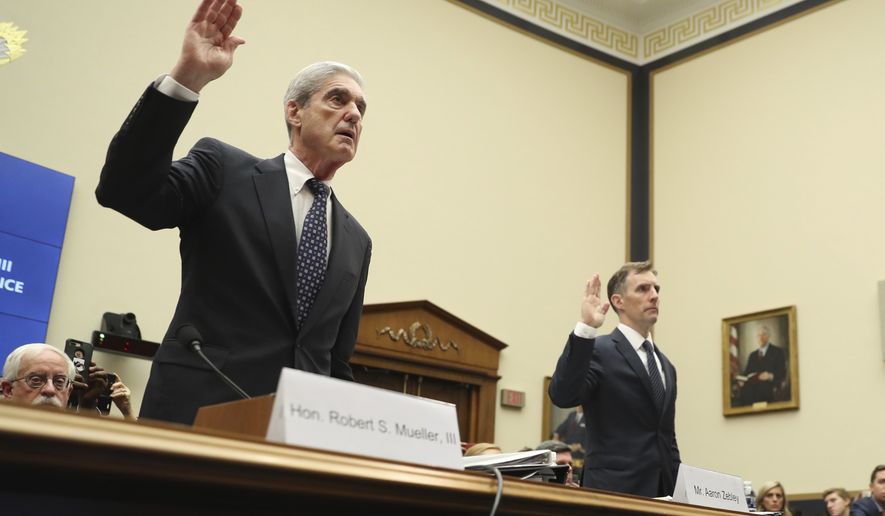Former special counsel Robert Mueller refused Wednesday to say why he declared that he couldn’t exonerate President Trump of obstruction of justice, going beyond the powers of a prosecutor to declare guilt or innocence.
“I’m going to pass on that,” Mr. Mueller told the House intelligence committee in the second of two hearings. “I’m not prepared to do a legal discussion in that arena.”
Mr. Mueller’s declaration in the 448-page special counsel’s report that he did not “exonerate” Mr. Trump of obstruction of justice has become the linchpin of Democrats’ argument for impeachment, and a source of anger for Republicans who said a prosecutor’s job is to bring charges or not, but not to hold the power of exoneration.
Rep. Mike Turner, Ohio Republican, said Mr. Mueller, as a special counsel, was exercising prosecutor’s powers given to him by the attorney general, and so his powers cannot go beyond the attorney general.
Mr. Turner piled up law books on the dais, then challenged Mr. Mueller to point to where the power to exonerate could be found.
“In fact, in our criminal justice system, there is no power or authority to exonerate,” Mr. Turner said.
The congressman pointed to the headlines out of the morning’s session that said Mr. Mueller said he did not exonerate Mr. Trump of obstruction.
“You don’t have the power or authority to exonerate Trump,” Mr. Turner said. “The statement about exoneration is misleading, and it’s meaningless, and it colors this investigation.”
• Stephen Dinan can be reached at sdinan@washingtontimes.com.




Please read our comment policy before commenting.